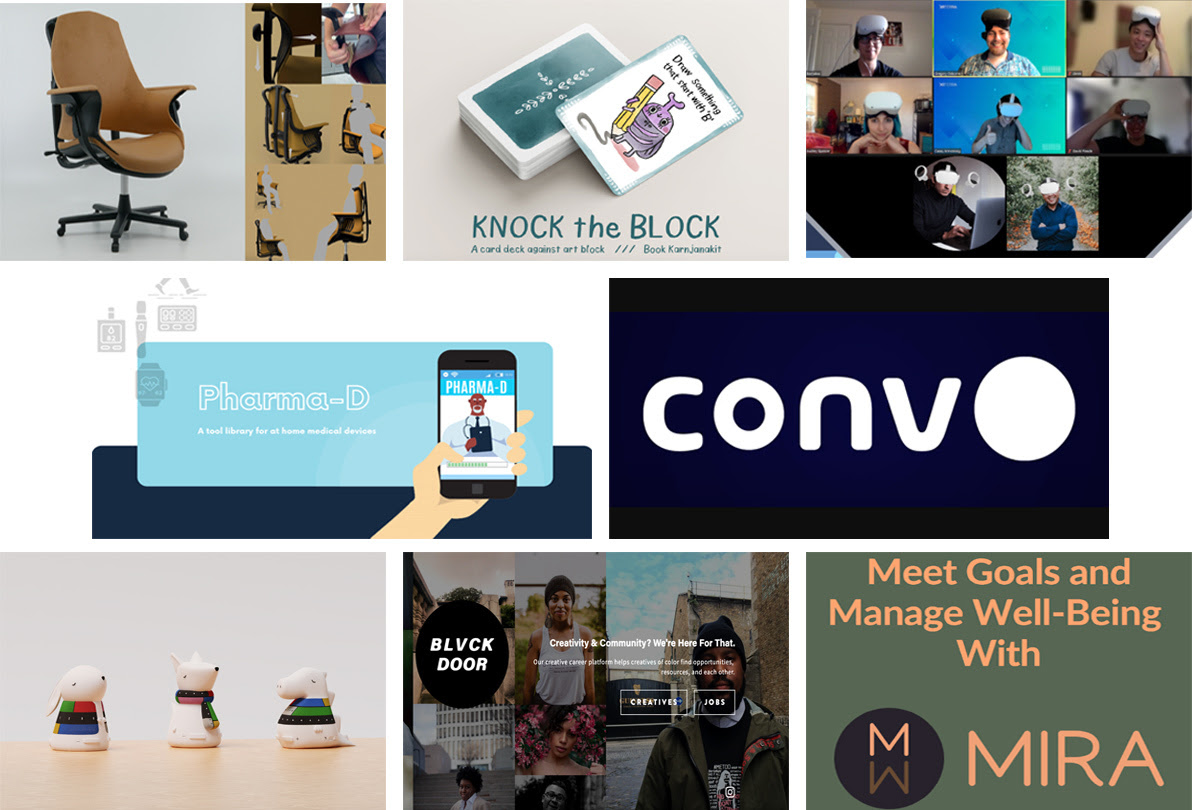Maryland Institute College of Art (MICA) has announced the eight finalists for its 2022 UP/Start Venture Competition, which offers $100,000 to emerging entrepreneurs from the Baltimore art college’s community.
This is the seventh cohort of the program from the Ratcliffe Center for Creative Entrepreneurship, the business and entrepreneurship hub of MICA that aims to help its students create socially conscious businesses and thrive in the modern creative economy. The eight finalists stood out in an initial pitch competition that included 43 ventures made up of MICA alumni and current students. As finalists, they will now participate in a four-month incubator program, culminating in a cohort celebration and competition finale on April 12.
“This may be their very first competition or exposure to this kind of incubator/accelerator format,” said Stacy Stube, Ratcliffe Center’s associate director, of MICA students or alumni. “Many of them say, ‘This is my first time pitching outside of class.’ This brings a lot of not only attention to their work, but seriousness where they realize [their venture] is something people might be interested in and there might be a market for it.”
Here’s a look at the eight finalists, with descriptions provided by MICA:
- Blvck Door, founded by Iman Carr, is an online platform to connect creatives of color to employers so they can benefit from having an equitable and diverse workforce.
- Compressent, founded by Herschel Ruben, designed a desk chair for autistic people and neurodivergent people that experience overstimulation of the nervous system and need a calming mechanism to be productive in their everyday lives.
- Convo, cofounded by Emma Koramshahi, Aleks Romano and Julia Breskin, uses AI and animation to illustrate how much space a person takes up in a virtual conversation and bring equity.
- Core Immersive Labs, led by Paolo Narciso is preparing people for jobs in the metaverse. It’s supplying the training, tools, and opportunities for underrepresented communities to thrive in the mixed reality space of the metaverse through creating a global innovation lab, and job placement services.
- Knock the Block, created by Book Karnjanakit, is a card deck of creative and self care prompts made to inspire creativity and help creatives of all kinds overcome art blocks.
- Mira is a virtual assistant app guided by a custom virtual avatar designed by users to help them achieve their goals. It’s designed by a UX designers Jana Thompson, Mackenzie Legg, Kelly Lynch, Justine Cantu and Heather Waugh.
- Pharma-D, created by Kristen Karlovich, is a tool designed to allow users to see the market of at-home/take-home medical devices. It’ll allow users to access electronic stethoscopes, heart monitors and cancer monitors, to name a few.
- Storypets, made by Monika Reddy, is a voice assistant that delivers bedtime stories to kids in the voice of the parent or the grandparent instead of a generic AI voice using pre-recorded messages in a cute, pet-shaped product.
Last year, six of the eight finalists in the 2021 cohort received seed funding from the $100,000 pool, with the awards based on the need of the venture. The highest seed funding award went to TamPal, with $35,000, as the org seeks to usher in the next generation of tampon and pad vending.







